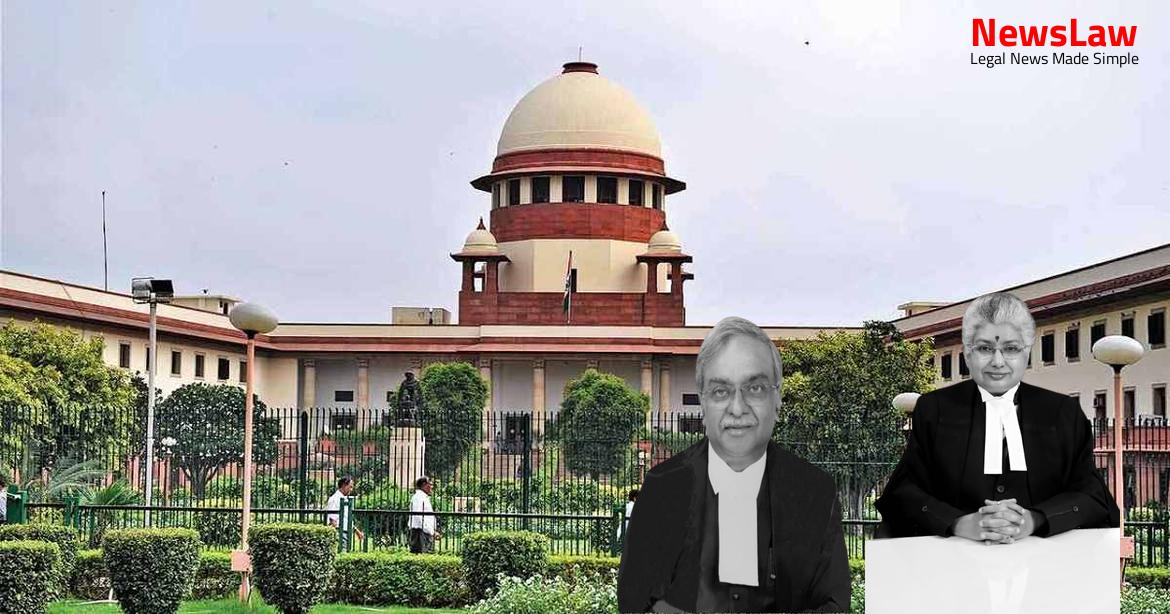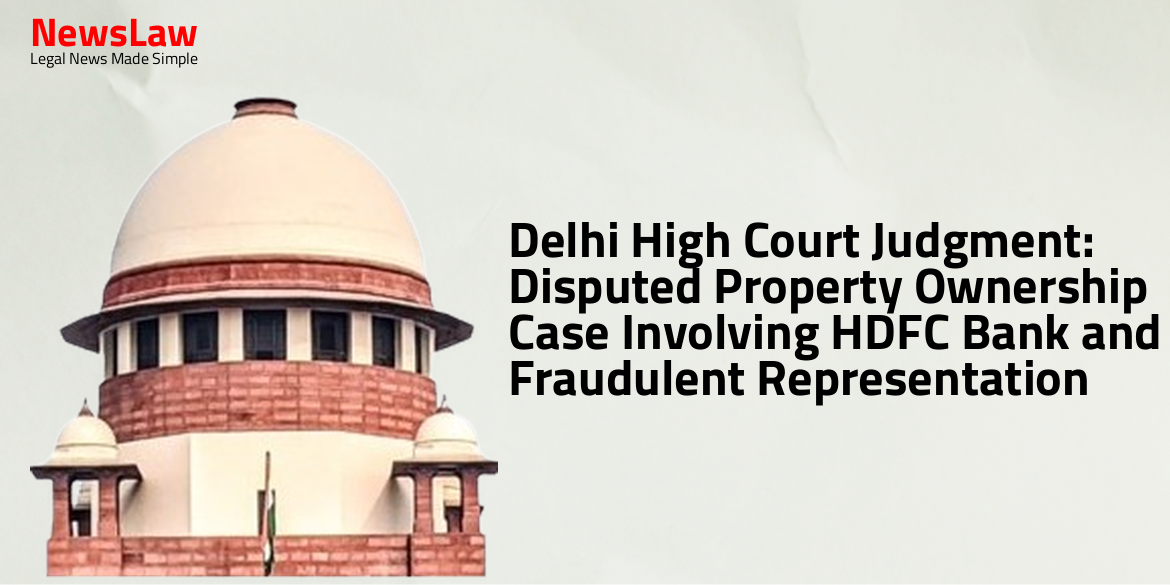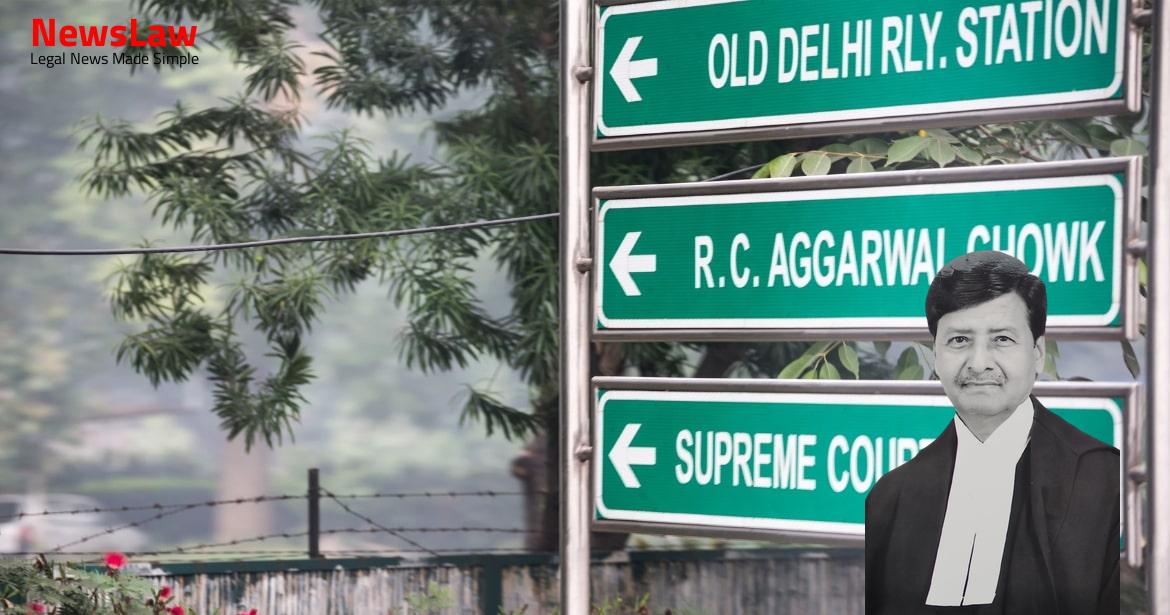Explore the legal intricacies surrounding classification based on educational qualifications in public employment, as analyzed by the High Court. The case delves into the legality and fairness of differentiation within a cadre for promotion based on educational credentials, shedding light on the court’s stance on equal treatment and the prerogatives of public policy in matters of employment. Follow this case summary for a detailed insight into the nuanced legal debate.
Facts
- The Single Judge of the High Court allowed the writ petition, deeming the circular to be arbitrary and unconstitutional, while the Division Bench reversed this decision, holding the classification based on educational qualifications for supernumerary appointments as valid.
- Supernumerary posts are subject to adjustment against permanent vacancies when created.
- The impugned circular and subsequent gradation list have been challenged before both the High Court and the Supreme Court.
- The impugned circular does not increase the normal strength of the Assistant Engineer cadre.
- Classification made by Kolkata Municipal Corporation (KMC) to remove frustration among stagnated Sub-Assistant Engineers is a policy decision aimed at increasing efficiency and should not be interfered with.
- The Division Bench upheld a circular dated 3 July 2012 of Kolkata Municipal Corporation, which set separate conditions for diploma and degree holder Sub-Assistant Engineers for supernumerary appointments as Assistant Engineers.
- The previous circulars making such a distinction have not been challenged and are still in effect.
- Irrespective of qualification, Sub-Assistant Engineers are given the basic pay scale of an Assistant Engineer after twenty years of service.
- The impugned circular only designates Sub-Assistant Engineers as Assistant Engineers through supernumerary posts without providing additional benefits.
- It does not alter existing promotional avenues but supplements them by conferring the title of Assistant Engineer on eligible Sub-Assistant Engineers.
- The Division Bench upheld the gradation list dated 5 July 2012 prepared in compliance with the impugned circular.
- The appellants, Sub-Assistant Engineers with a diploma in engineering, challenged the circular and gradation list before the High Court on the grounds of violating Articles 14 and 16 of the Constitution.
- The appeal court upheld the validity of the circular and gradation list, emphasizing the separate channels of promotion for degree holders and diploma holders recruited through different qualification-based channels.
- KMC has issued a draft gradation list dated 4 March 2021 during the appeal, indicating that diploma holders may have limited promotional avenues due to the impugned circular.
- The impugned circular’s effect may result in a junior Sub-Assistant Engineer being promoted ahead of seniors.
- The proposal for the second career advancement scheme was implemented by a circular dated 3 July 2012.
- In 2012, the Personnel Department of KMC circulated a proposal for creating supernumerary posts in the rank of Assistant Engineers (AEs) to provide promotional avenues for Sub-ordinate Assistant Engineers (SAEs).
Also Read: Electoral Malpractices in Mayor Election
Issue
- The question is whether persons from a common source in a cadre can be differentiated based on educational qualifications for promotion to supernumerary posts.
- Integration into a cadre has occurred for the individuals in question.
- The specific issue pertains to the differentiation for promotion based on educational qualifications.
- The judgment will need to address the legality and fairness of such differentiation within the cadre.
Also Read: Balancing Power and Transparency: Electoral Bonds Struck Down, Disclosure Mandated
Arguments
- Appellants argue that educational qualifications should not be a valid ground for classification in public employment or for denying promotional avenues.
- Appellants refer to specific precedent cases like AS Iyer v. V Balasubramanyam and others to support their argument.
- Opposing counsel argues that educational qualifications are a criteria for recruitment and promotion in the Engineering Service of KMC.
- The purpose of the impugned circular was to provide promotional avenues for stagnating SAEs without granting substantive promotional posts or financial benefits.
- Appellants emphasize the need for equal treatment once individuals are members of a service and refer to cases like Union of India v. Atul Shukla & Ors. and others.
- The case in question involves differentiation between graduates and diploma holders within the same cadre, which the appellants argue is unjust.
- KMC failed to provide notice for existing SAEs to obtain higher qualifications for promotion, leading to differential treatment.
- The Court notes the consistent differentiation between graduate and non-graduate supervisors in the Engineering Department’s service rules.
Also Read: Recall of Resolution Plan Approval: Legal Analysis
Analysis
- Educational qualifications can be recognized as a criterion for classification in matters of public employment.
- Differentiation based on ‘source of recruitment’ is not a valid ground for classification.
- Promotion eligibility criteria can differ based on educational qualifications, as seen in the case of Assistant Engineers from Junior Engineers.
- Integration of direct recruits and promotees into a common pool prohibits treating them differently based on source of recruitment.
- Differences in educational qualifications can be compensated by variances in the length of experience required in the feeder post.
- Graduates and non-graduates can be differentiated for promotion based on educational qualifications if it aligns with the efficiency required in the promotional post.
- Introduction of a quota for promotion of degree-holder SAEs by KMC since 1997
- Creation of a distinction between degree-holder and diploma-holder SAEs in matters of promotion by KMC
- Amendments to the Recruitment Regulations indicating a preference for degree-holder SAEs
- Discussion on the reasonableness of the classification based on educational qualifications
- Illustration of the distinction made in promotion practices between degree and diploma holder SAEs
- Clarification on the promotional policy not being irrational or arbitrary
- Explanation on the eligibility conditions for promotion to supernumerary AE posts
- Emphasis on the nexus between educational qualification and administrative efficiency
- Comparison of promotional avenues for degree and diploma holder SAEs
- Affirmation of the legality of the promotional conditions set by KMC
- Legislature or its delegate should have sufficient room to decide on the quality of individuals for different positions in public policy and public employment.
- Interference by the Court is not warranted as long as the decisions are not arbitrary.
- The impugned circular and subsequent gradation list were found to be free from arbitrariness and discrimination.
Decision
- The Division Bench of the High Court decision is upheld.
- The appeal is dismissed.
- Any pending applications will be dismissed.
Case Title: CHANDAN BANERJEE Vs. KRISHNA PROSAD GHOSH (2021 INSC 516)
Case Number: C.A. No.-005582-005582 / 2021



